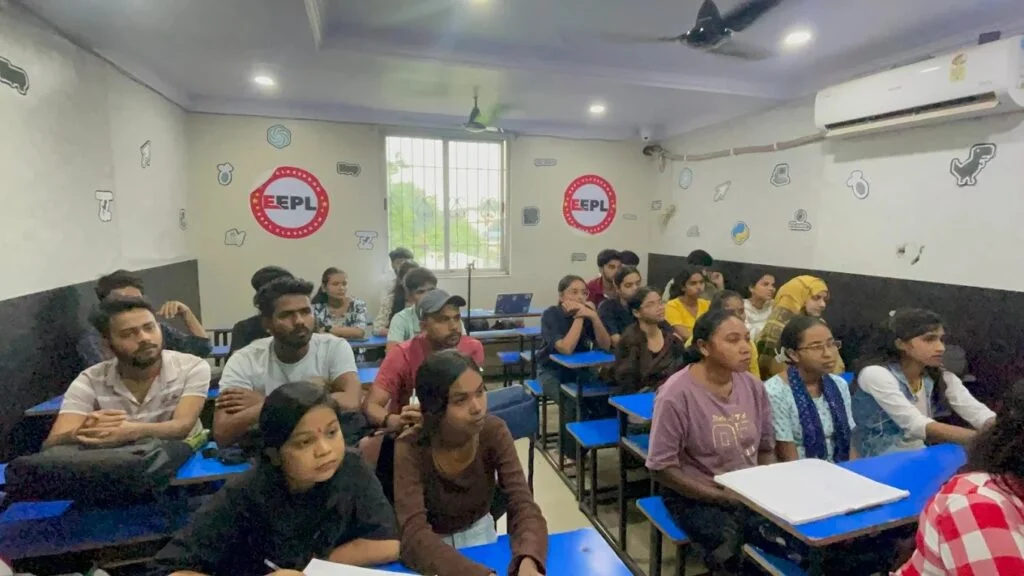Understanding Soft Skills
Soft skills refer to a set of interpersonal attributes and communication abilities that enable individuals to interact effectively with others. Unlike hard skills, which are specific and tangible technical competencies—such as coding, accounting, or data analysis—soft skills encompass a broader range of qualities that are essential for functioning in diverse workplace environments. These skills are often referred to as “people skills” and are critical to professional success.
Many commonly recognized soft skills include communication, teamwork, problem-solving, adaptability, and emotional intelligence. Communication skills involve not only the ability to convey information clearly and effectively but also the capacity to listen and understand others’ viewpoints. Strong teamwork skills are paramount in collaborative settings, fostering a harmonious working relationship among team members. Additionally, problem-solving skills enable employees to navigate challenges creatively and constructively, promoting an innovative work culture.
Flexibility and adaptability are vital soft skills in today’s fast-paced, ever-changing job market, allowing individuals to adjust to new challenges and circumstances with ease. Emotional intelligence, the capacity to recognize and manage one’s emotions and those of others, plays a significant role in relationship-building and conflict resolution. These attributes collectively enhance an individual’s ability to work well with others, contribute to team success, and ultimately drive organizational performance.
Recognizing the importance of soft skills is crucial for professionals at every career stage, whether they are entering the job market or advancing in their careers. Employers increasingly prioritize these skills, considering them as critical as technical knowledge. As such, investing in soft skills training can greatly enhance an individual’s employability, equipping them with the capabilities needed to thrive in the modern workplace.
The Impact of Soft Skills on Employability
In today’s competitive job market, soft skills have emerged as crucial factors that can significantly influence employability. Soft skills, which include interpersonal abilities, communication skills, teamwork, and adaptability, are highly sought after by employers complementing technical qualifications. Research indicates that a staggering 93% of employers believe soft skills are vital for success in the workplace, often prioritizing them alongside or even above technical expertise when evaluating job candidates.
Employers recognize that while technical skills may enable an employee to perform specific tasks, soft skills underpin how effectively they communicate, collaborate, and problem-solve within a team. A variety of studies reveal a direct correlation between job opportunities and the possession of strong soft skills. For instance, a study by the National Association of Colleges and Employers (NACE) found that employers give considerable weight to candidates’ communication and teamwork skills, emphasizing that these skills are paramount in ensuring a harmonious workplace and successful project completions.
Real-world scenarios offer compelling testimonials from hiring managers who frequently encounter the impact of soft skills in their selection process. One manager notes that candidates who excel in soft skills, such as adaptability and emotional intelligence, tend to thrive in dynamic environments and are often promoted more quickly than others with similar technical qualifications. Furthermore, organizations that invest in soft skill development programs report better employee satisfaction and retention rates, highlighting the long-term benefits of nurturing these essential competencies.
In summary, the relationship between soft skills and employability is undeniable. As employers increasingly acknowledge the value of these skills in fostering effective work relationships and driving business success, candidates who actively develop their soft skills will find themselves better positioned in the job market, enhancing their overall career trajectory.
Effective Soft Skills Training Techniques
To enhance employability, a range of effective soft skills training techniques can be employed to equip job seekers with essential interpersonal abilities. Workshops serve as a vital platform where individuals can engage in hands-on activities, simulations, and discussions. These participatory experiences not only promote active learning but also foster collaboration among participants, which is crucial for the development of skills like communication and teamwork.
Another effective method is role-playing, which allows trainees to practice scenarios that they may encounter in a professional environment. Through reenacting situations, participants can develop empathy, adaptability, and problem-solving abilities. This technique encourages individuals to step out of their comfort zones and learn how to manage various interpersonal dynamics, thereby enhancing their soft skill sets.
Group activities are equally valuable, as they provide opportunities for individuals to engage in cooperative tasks that require effective coordination and communication. Facilitators can design these activities to emphasize the importance of listening, conflict resolution, and leadership, which are critical components of soft skill training. Such interactions help participants recognize their strengths and areas for improvement in real-time.
In addition to in-person training, online courses have gained popularity due to their flexibility and accessibility. Various platforms offer comprehensive programs that cover a wide array of soft skills. Participants can learn at their own pace and revisit materials as needed. These courses often include assessments that allow individuals to evaluate their skill levels and progress.
The importance of feedback and self-reflection in the training process cannot be overstated. Constructive feedback provides trainees with insights into their performance, enabling them to identify specific areas for improvement. Encouraging self-reflection, such as keeping a journal or engaging in peer assessments, empowers individuals to take ownership of their soft skill development.
For those seeking formal resources, numerous organizations specialize in soft skills training. Programs offered by professional development institutions or community colleges can provide structured learning paths. Furthermore, online resources, including webinars and workshops, ensure that trainees have access to diverse learning opportunities tailored to their needs.
Incorporating Soft Skills into Your Job Search
In today’s competitive job market, demonstrating proficiency in soft skills is essential for job seekers aiming to enhance their employability. To effectively showcase these vital competencies during the job search process, a strategic approach can make a considerable difference. One of the foundational steps is tailoring your resume to highlight relevant soft skills. Instead of merely listing job duties, candidates should integrate specific instances where they effectively utilized their interpersonal skills, problem-solving abilities, or teamwork during previous roles. Using action verbs and quantifying achievements can bring these skills to life for potential employers.
Cover letters provide another golden opportunity to express soft skills. Job seekers should weave narratives that not only explain why they are suited for a position but also illustrate their soft skills in action. For instance, detailing a situation in which collaborative efforts led to a successful project presents not only experience but also the ability to work well with others, which is highly valued by employers. Emphasizing these attributes can create a more compelling case for a candidate’s overall fit within an organization.
During interviews, articulating soft skills effectively is just as crucial. Candidates should prepare by practicing responses that connect their experiences with required soft skills, ensuring they are ready to discuss how qualities such as adaptability, communication, and empathy contribute to their professional success. Role-playing interview scenarios with peers or career coaches can aid in building confidence and refining delivery. Additionally, networking events offer the chance to demonstrate soft skills in real-time. Here, attending professionals can practice active listening, engaging in meaningful conversations, and showcasing their interpersonal acumen.
Furthermore, cultivating a strong professional brand that embodies one’s soft skills can significantly impact job prospects. Using platforms like LinkedIn, individuals can share achievements and insights that reflect their interpersonal capabilities. Authenticity and confidence are key in this process; potential employers are more likely to appreciate candidates who communicate their skills genuinely and clearly place their soft skills front and center.










